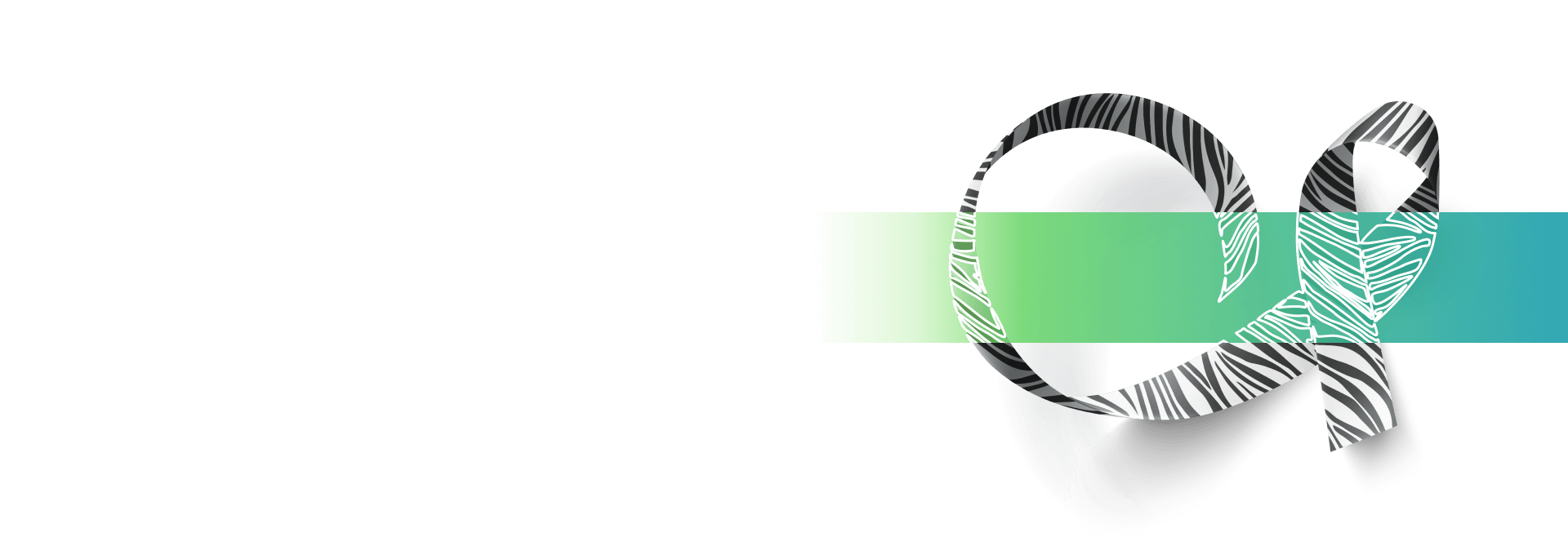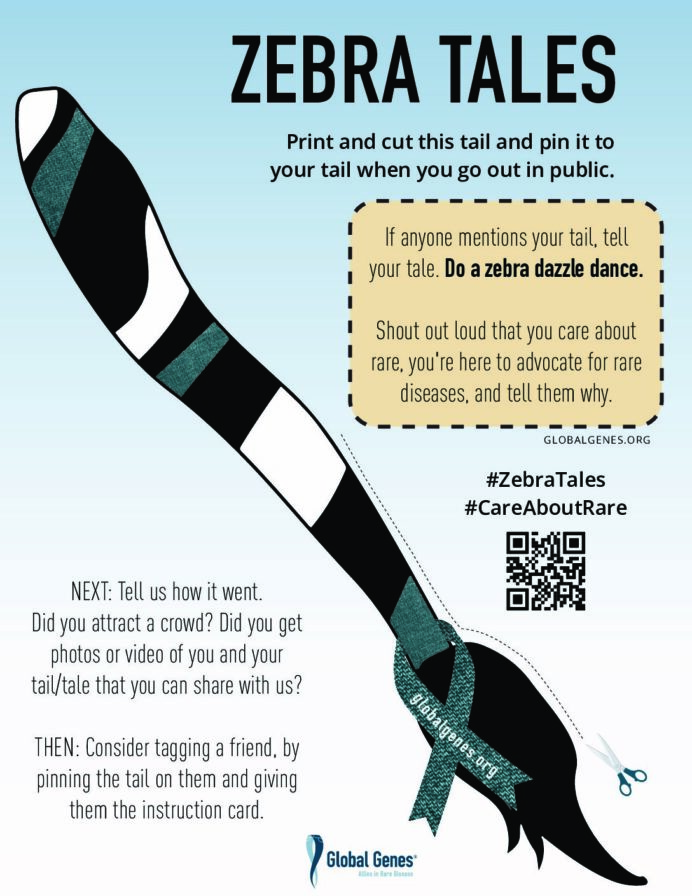The Rare Moments
You know those rare moments that give you goosebumps? The ones that provide a new perspective, connect two ideas in a way you’ve never considered before, or just really hit home?
For Rare Disease Day this February, you’ll find a curation of those moments here — The Rare Moments. Patients, families, researchers, and people working to advance rare disease treatments will be using this space to pass on their goosebump moments. From past moments, to the significant highlights of the 2024 Rare Disease Week and Rare Disease Day, and even hopes for the future, here you will find diverse and valuable insights that matter to our community and expand our reader’s understanding of what it means to live with and work with rare diseases.
Be sure to check back regularly throughout the month to catch the latest posts and submit your Rare Moment for consideration!
See what’s been sharedThat’s a wrap for now!
This feed is no longer active or accepting submissions, but we encourage you to check out the posts below which were submitted during February 2024 in support of Rare Disease Day.

We live for the rare moments.
Thank you for sharing and reading this curation from our rare disease community!
With approval of the first treatment to use gene editing to address a genetic rare disease, plus all the very recent innovations in base editing, prime editing, and lipid nanoparticle delivery, I’m hopeful we’ll see an ever-increasing number of gene editing programs in development for patient communities with genetically driven rare diseases. Kudos to the pioneers with development programs for rare cardiovascular diseases, rare blood cancers, rare hemoglobinopathies, rare bleeding disorders, rare metabolic disorders, rare neuromuscular diseases, and rare inherited retinal diseases!
So incredibly touched to receive this book from our friends at Ultragenyx. Dr. Emil Kakkis has been at the forefront of rare disease research throughout his entire career. I’m looking forward to reading this book throughout Rare Disease Week!
Happening now through 25 Feb – VCP International Conference!! Check out the abstracts from the many researchers who are participating in this meeting. By bridging the gaps between various disciplines, from oncology to neurodegeneration, the Cure VCP conference will drive innovation and coordination in research, accelerating our progress to find a cure for valosin-containing protein (VCP) associate multisystem proteinopathy (MSP).
www.curevcp.org/posterabstractsWe are excited to share our Keto Care Project! Ketogenic diets are the current standard of care for Glut1 deficiency. Not all patients have access to ketogenic clinical or high-quality ketogenic diet support. The Keto Care Project aims to provide expert ketogenic dietician care to underserved patients and families. Would this be a useful service to your community?
Keto Care Project | Glut1 Deficiency Foundation
about Glut1 Deficiency is a rare, metabolic condition where glucose transport into the brain is impaired, causing a wide range of neurological symptoms. Ketogenic diets are the current standard of…
www.g1dfoundation.orgThe Orphan Drug Act (ODA) of 1983 made the development of desperately needed new treatments for rare disease patient communities a possibility in ways it truly had not been before. Over the 40 years of the ODA, 6,340 orphan drug designations were granted, representing drug development for 1,079 rare diseases. Additionally, 882 of those designations resulted in at least one FDA approval for use in 392 rare diseases. While having an approved treatment option for 5% of rare disease communities is progress, we’ve seen time and again how partnering with patient communities increases efficiency. Let’s all do more of that!
Fall of 2015, I attended my first rare disease advocacy conference. It was Global Genes Patient Advocacy Summit. I was overwhelmed and amazed at how many people were advocating for rare diseases and how many different paths they took. Meeting Bo Bigelow there certainly shaped my path. Although we faced different diagnoses (USP7 for his daughter Tess and Menkes Syndrome for my son Lucas), we had so much in common. Eventually we co-founded The Disorder Channel to stream rare disease films on TV. We collaborated with Global Genes to screen some of these films. And three years ago, I joined the staff at Global Genes to lead an online support community, to encourage others to share their #ZebraTales, to teach them rare disease filmmaking, and to help plan that same conference that started it all for me.

globalgenes.org/world-rare-disease-day/I’ve worked in this industry approaching 25 years. When I first started, most clinical trials focused on treating disease symptoms so patients could feel better and live fuller lives. Today, though, we’re treating the underlying pathophysiology of diseases, and we’ve only just begun to do amazing science. I’m proud of the work our global teams are doing in Precision Medicine and Personalized Medicines, hopefully leading to a brighter future for rare disease patients everywhere.
Check out our Bright Horizons Project! The goal of this project is to provide individualized behavior support services to help navigate the unique social challenges of this disease, foster independence skills, and help build a brighter future for all who live with Glut1 deficiency. Check it out here!
Bright Horizons Project | Glut1 Deficiency Foundation
about Glut1 Deficiency is a rare, metabolic condition where glucose transport into the brain is impaired, causing a wide range of neurological symptoms and social challenges. The goal of the…
www.g1dfoundation.orgThe International Autoimmune Encephalitis Society (IAES) is the only family/patient-centered organization for people with a diagnosis of Autoimmune Encephalitis. The services we provide are all-inclusive, from getting a diagnosis to recovery and the many challenges experienced on that journey. IAES provides science-based information backed by trusted medical experts in the field of autoimmune neurology and relies on the expertise of our Medical Advisory Board. We are an established non-profit organization with a history of supporting Autoimmune Encephalitis Warriors (patients, caregivers, and families) through their journey from diagnosis to recovery.
International Autoimmune Encephalitis Society
What does the future of genomic medicine look like?
Join us for our FREE webinar on February 27th, 1-3 pm ET, as we explore some possible answers to this question. Kelly Athman from the Institute for Genomics Education, Workforce & Leadership at Sarah Lawrence College will guide us through our journey into the future with talks from Amy Gaviglio, Billie Lianoglou, and Derek Ansel. We will discuss newborn screening modernization, cutting-edge therapeutic advancements, and the genomics workforce evolution.
This event is open to all. Please register at the link below.
www.sarahlawrence.edu/news-events/events/detail/15718The Therapeutic Odyssey Series Part 3: The Future of Therapeutics in Genomic Medicine
There’s always something happening at Sarah Lawrence College. Browse our Events Calendar and learn more about upcoming events on campus and open to the public.
www.sarahlawrence.edu